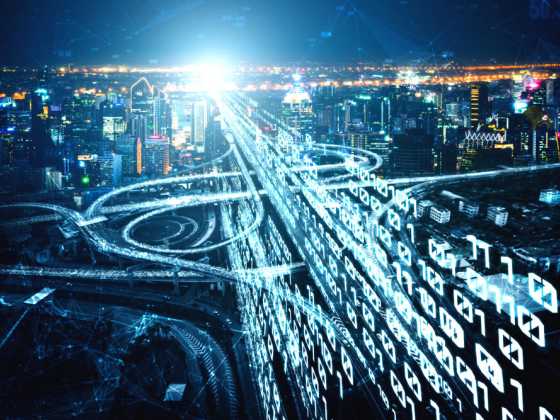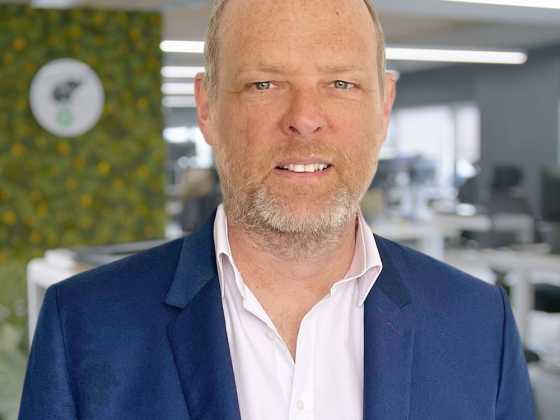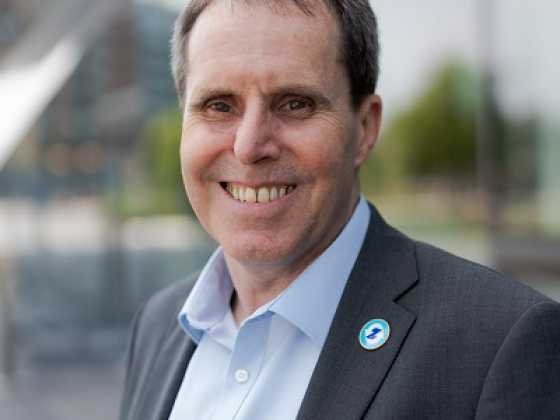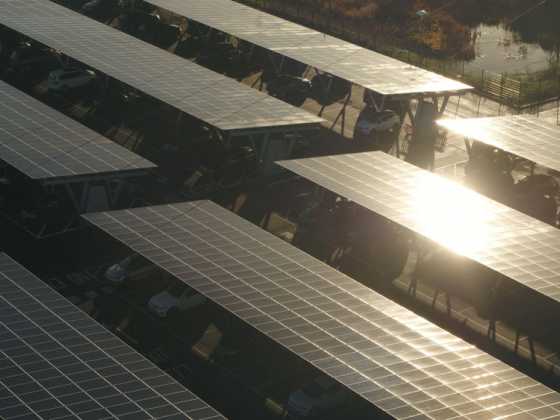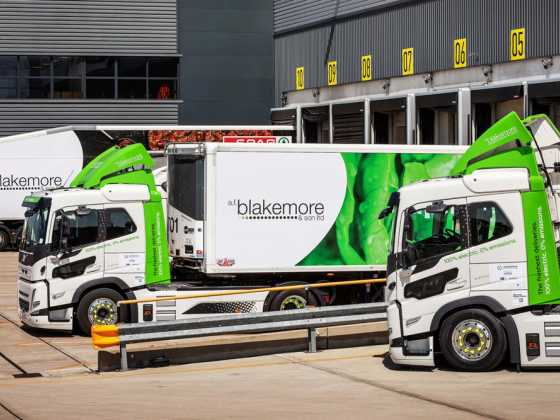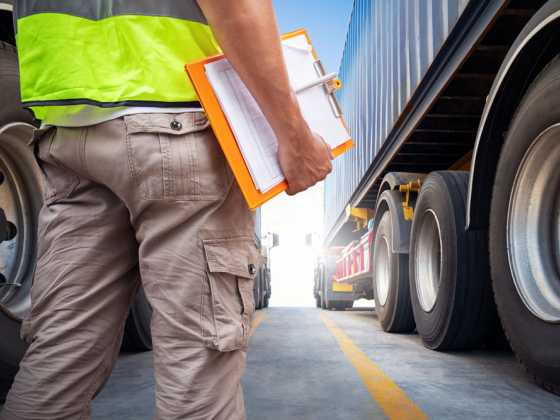Electrifying medium and heavy duty vehicles

The Climate Group has recently launched a new transport leadership commitment, EV100+, which sees companies joining together in their pledge to electrify their medium and heavy duty vehicles, which are currently harder to decarbonise than passenger cars and light vans
The Climate Group, the not-for-profit organisation behind the successful EV100 initiative, has now launched a new leadership commitment targeting the electrification of medium and heavy duty vehicles.
Five globally recognised businesses – IKEA, Unilever, JSW Steel Limited, A.P. Moller - Maersk and GeoPost/DPDgroup – are the founding members of the initiative. Together they have committed to transition their fleet of vehicles over 7.5 tonnes to zero emission by 2040 in OECD markets, China and India.
Representing just four per cent of all vehicles on the road globally, medium to heavy duty vehicles (MHDVs) account for 40 per cent of all road transport emissions and a third of total transport fuel use. These vehicles produced over five per cent of total global CO2 emissions in 2019, predicted to increase to over 11 per cent by 2050 if steps to decarbonise are not taken.
To achieve the objectives of the Paris Agreement, heavy-duty road transport must be completely decarbonised. With advances in technology making it possible, all new trucks sold in the world’s major markets must be zero emission by 2040.
EV100+ members have committed to only procuring zero-emission medium-duty vehicles by 2030 and for a full deployment of zero-emission such vehicles by 2040. The collective pledge to electrify these vehicles helps to stimulate the market. EV100+ will also support these businesses by creating a platform for knowledge sharing, and joint policy engagement.
Sandra Roling, director of transport at Climate Group, comments: “We’re very excited to launch EV100+ at this year’s Climate Week NYC. It’s a great demonstration of leadership from the founding members. MHDVs represent the final frontier of zero emission road transportation, and EV100+ will tackle the heaviest, most polluting vehicles on our roads around the world.”
Sandra added: “We’ve seen over the last five years how EV100 has acted as a powerful catalyst for change across light-duty vehicle fleets. Now it’s time for EV100+ to drive this change across global MHDV fleets as well - businesses are willing to lead this change.” Founding members EV100+’s founding members are helping to drive demand for zero emission MHDVs from manufacturers and supporting governments in implementing policies that encourage their adoption at the speed and scale needed.
IKEA, one of the founding member companies, aims to use electrified or zero emission heavy duty trucks in all road transportation in the OECD countries, China and India by 2040. The company believes that collaboration is the key to the successful transition. Elisabeth Munck af Rosenschöld, IKEA supply chain operations manager, said: “Key to accelerating the deployment of zero-emission trucks is to collaborate across the transport industry with confidence and clarity on the direction. The electrification of transport plays a big role in phasing out fossil fuels in the IKEA supply chain. We are joining EV100+ to magnify the movement toward sustainable transportation. It is urgent and doable.”
A.P. Moller - Maersk is an integrated container logistics company working to connect and simplify its customers’ supply chains. The company operates in 130 countries and employs about 95,000 people. Maersk is aiming to reach net zero emissions by 2040 with new technology, new vessels, and new fuels. Morten Bo Christiansen, SVP, head of decarbonisation at A.P. Moller - Maersk, commented: “We are thrilled to be one of the founding members of Climate Group’s new EV100+ initiative alongside other leading businesses. In A.P. Moller - Maersk, we are committed to transition our entire business to net zero emissions by 2040 – including our landside business. This initiative sends a powerful message to customers, partners, and manufacturers that we believe the future of our global medium- and heavy-duty fleet is net zero emissions.” Decarbonising freight JSW Steel has committed to decarbonising its freight operations by transitioning its fleet of around 1,000 medium and heavy-duty ICE vehicles by 2040. The transition will include phasing out of around 500 diesel-operated vehicles above 7.5t to electric vehicles by 2040, including 250 vehicles above 20t. The company expects that the need for operating the remaining 500 vehicles from the existing fleet will be optimised through a process of several operational improvements and upgrades being deployed.
Sanjay Rath, executive vice president - commercial and purchase at JSW Steel said: “By joining EV100+ initiative as a founding member, we at JSW Steel advance our commitment to support India’s net zero goal. JSW Steel has an ambitious target of reducing its carbon emission by 42 per cent (versus base year 2005) by FY30. We are currently on the journey towards achieving the target through a strategic climate action agenda and various steps in our operations. Through this commitment we would want to decarbonise our freight operations by transitioning the fleet (in heavier segments > 7.5t) to Electric Vehicles or alternatives, thus allowing our unrelenting desire to become Better Everyday.”
Michelle Grose, VP, global logistics and fulfilment at Unilever, adds: “Unilever has set the goal of achieving net zero emissions across our value chain by 2039, and logistics is a key area of focus since it accounts for 15% of our total footprint. In recent years we’ve made big strides on CO2 savings by improving efficiency and reducing the number of trucks on the road. Now, alongside our EV100+ partners we’ll be sending a powerful signal to governments, manufacturers and the wider industry that the future of global medium- and heavy-duty road transport is electric, and we hope to inspire other companies to join us.”
GeoPost/DPDgroup, headquartered in France, aims to become the international reference in sustainable delivery with the ambition to reach net zero emissions by 2040.
As a founding member of EV100+, GeoPost/DPDgroup aims to transition 100% of its fleet of medium- and heavy-duty vehicles to zero tailpipe emission alternatives, notably electric and hydrogen, by 2040. The company will work towards this goal in its twenty main business units in Europe in collaboration with its partners.
Jean-Claude Sonet, executive vice president in charge of marketing, communication and sustainability at GeoPost/DPDgroup, says: “We are committed to sustainable delivery and have set ourselves a bold ambition to reach net zero by 2040. Yet success will depend on our ability to transition our medium- and heavy-goods vehicles to zero tailpipe emissions by 2040. All sectors must work together if society is to be meet global climate goals. We are therefore excited to work alongside other like-minded businesses to send a powerful message to both governments and manufacturers that we believe the future of trucking is zero emission.” Pledging to go electric EV100+ builds on the success of Climate Group’s global EV100 initiative which targets the electrification of passenger cars and light commercial vehicles. Launched in 2017, the initiative brings together companies committed to making electric transport the new normal by 2030.
New joiners include global pharmaceutical and biosciences company Bayer, British-based multinational bank Barclays, international financial services provider Allianz SE, India’s fastest-growing agri-commerce company WayCool and precision instrumentation supplier Spectris Plc.
In addition to electrifying their fleets, WayCool and Spectris Plc have also committed to installing charging infrastructure across their estate for use by their staff and customers.
With these new joiners, membership now stands at 128. In five years, EV100 has grown from ten founding members to a global network of businesses committed to the growth of electromobility across almost 100 markets worldwide.
EV100 was launched in 2017 as a global business initiative designed to accelerate acceptance of Electric Vehicles (EV) and its infrastructure. It was launched in New York by The Climate Group during Climate Week. At the time, it was the only initiative of its kind to encourage global businesses to commit to electric transport, with members committing to transition their petrol and diesel fleets to electric vehicle fleets by 2030. The 10 founding founding members were LeasePlan, Unilever, Baidu, IKEA Group, HP Inc., Vattenfall, PG&E, Deutsche Post DHL and Metro AG and Heathrow Airport.
At the time, Helen Clarkson, CEO of The Climate Group, said: “EV100 will use companies’ collective global buying power and influence on employees and customers to build demand and cut costs. The members see the business logic in leading a faster transition and addressing local air quality issues in their markets. They are setting a competitive challenge to the auto industry to deliver more EVs, sooner and at lower cost.”
Commenting on the new members, Sandra Roling, director of transport at the Climate Group, said: “We warmly welcome our five new members who have made the bold commitment to electrify their fleets and deploy charging infrastructure by 2030. It’s amazing to think that in just five years EV100 has grown so rapidly. We will continue to push other businesses, vehicle manufacturers and governments across the world to work with us to ensure the future of road transportation is electric.
“I also want to say a huge congratulations to every single EV100 member as we celebrate five years, for the progress made so far on their journey with us. Over 200,000 EVs are already on the road thanks to EV100 members, and by 2030 over 5.5 million fleet vehicles will be zero emission.”

